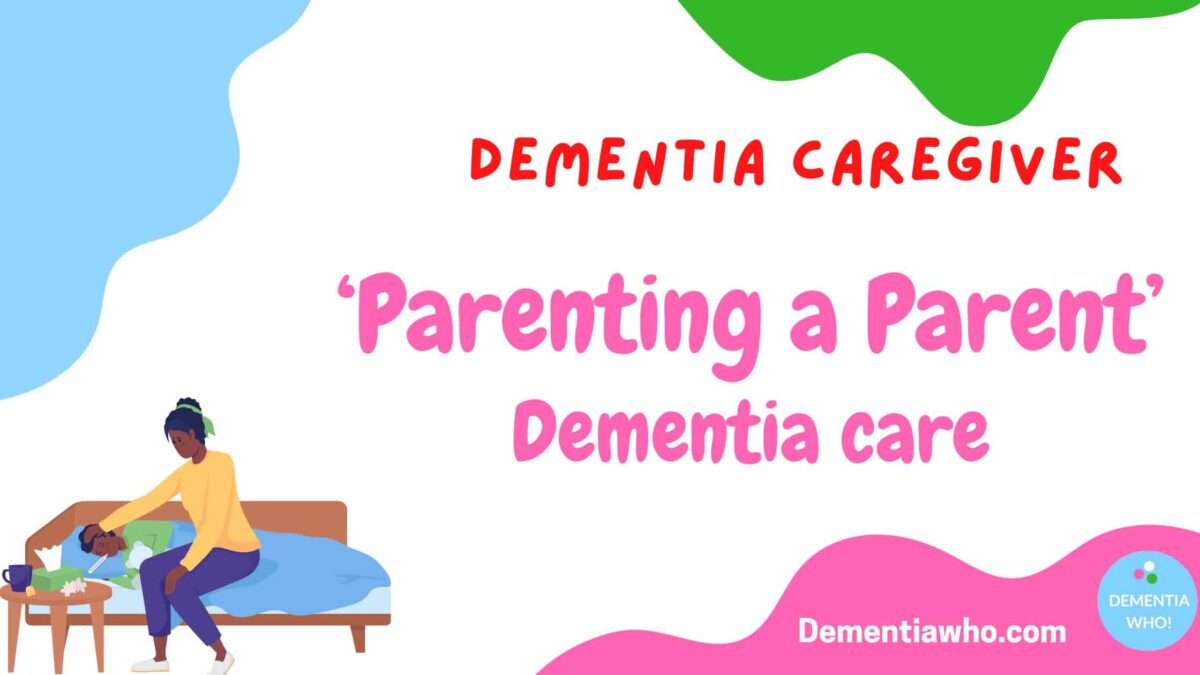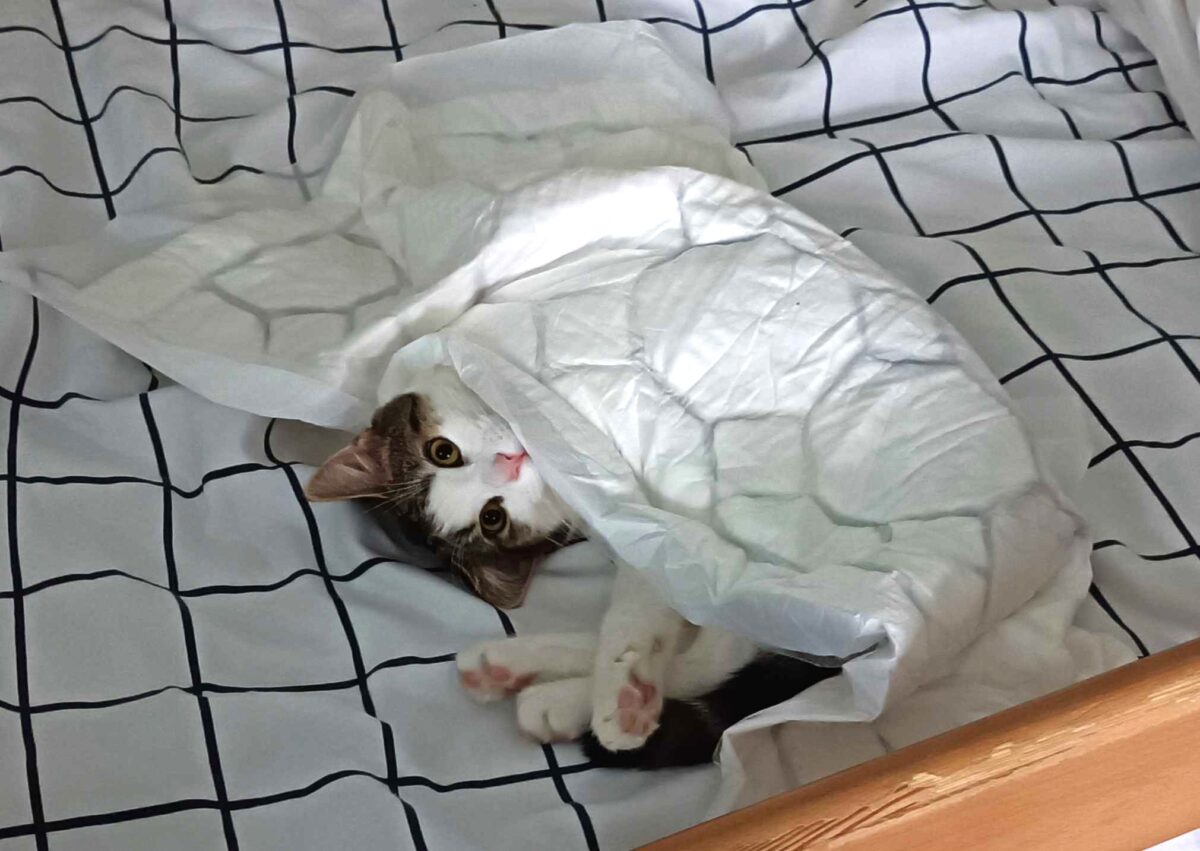Eww, can’t believe I just used that term, parenting a parent, it just came out. Where’s the dignity in that? My mum is an adult. She doesn’t need parenting she just needs help and support. I realised that I’ve fallen into the many traps that I thought I’d avoided in terms of language and how we talk about someone with dementia, and honestly, I should know better after the many years that I’ve been caring!
It’s Christmas Eve, but I promised to write a personal update each week. This will be my last of the year. I’m wishing you and your family a wonderful celebration. If you have time, then please read on.

What is Parenting a Parent?
I do feel that I’ve been parenting my parent, mum in this case, without realising that I’m doing it and as such, my behaviours and way that I interact with her have changed over the last few years.
Parenting a parent is not the correct term to use. What I mean is that I’ve started to make choices for her (with that old mantra, I know mum best; I know what she wants), not really treating mum as an adult who’s capable of making her own choices, unintentionally.
It’s about treating mum with dignity. Dignity in care for me means treating the person you care for with respect, kindness, compassion, the right to make choices, to be treated as an equal and, of course, the right to say no and much more.
Gradual Changes
It’s been a gradual change, which I hadn’t noticed until I started writing these weekly blogs. I see it now in the language that I use when referring to mum, please tell me in the comments if you see what I suspect is happening (assuming you’re a regular reader of my blog).
Mum suffers from several medical problem, her spinal condition means that she can only really move one arm now up to her mouth, her other arm is always tucked into her chest. Over the years, I’ve been doing more and more for mum to help her.
Of course, for others that’s going to vary depending on the stage of dementia, mobility, overall health, communications and living arrangements amongst a few things for the person you care for. But for mum, it all started with good intentions of supporting, but somewhere along the line, things have begun to change. I’ve slowly changed from caring to parenting without realising it.
Old Frustrations
I think part of the problem is that when you’re taking care of a parent with dementia, then your old frustrations start to surface, especially when your own relationship initially wasn’t great to begin with.
Without meaning to, I’ve started to do things that make life easier for me, but take away independence and choice from mum, not all the time but looking back I see I’ve been doing it too much.
Let’s be honest, I’m human. I make mistakes and I know that it’s my frustrations or impatience in making these choices and not the lack of response from mum.
Things Need to Change
I need to go back to the basics, talk about mum in better terms and be mindful of my behaviours around her, these are the questions I’m going to keep asking myself to check that I don’t slip back into old bad habits, maybe they can be of help for you too (please tell me I’m not the only person who’s fallen into this trap of parenting vs caring for a parent!)
So, ask yourself as I’m going to:-
- Do I give mum time to answer or express her feelings when I’m busy with daily life cooking, cleaning etc?
- Are my expectations too low? Just because mum’s mobility has suffered, it doesn’t mean that I can’t engage her in helping me, one thing that hasn’t suffered is mum’s ability to correct me on the right way to do things which she enjoys.
- Am I making assumptions? I found this with the musical group she’s joined. I thought that she would never be interested in it, but I was wrong. She may not know the songs, but she does feel the camaraderie in the group.
- Correcting yourself – Tiredness does really play a part in the way we interact with our loved ones; fuses get lit a lot easier when you’re not rested. It’s important to correct yourself when you see yourself parenting vs caring. Small steps, because it’s not going to all change overnight, especially when you’re overtired, mistakes will still happen. Just make peace with that.
- Do you recognise that the dementia is progressing? Making changes isn’t a bad thing especially in the way I interact with mum, but I do need to recognise that mum’s dementia has changed, she isn’t the same as she was a week ago, and instead of letting frustrations get the better of me, stop and a take a moment to adjust my behaviour.
A recent example is that I’ve started to feed mum, as she’s choking on food from dysphagia. I’m doing the easiest thing for me, because it can take mum hours to eat a plate of food. Instead, I should be using the hand over hand technique, helping her to raise the spoon to her mouth, helping her slow down her eating rather than taking over the activity completely.
I’m making the first steps towards being more caring and avoiding parenting. This blog arose as I’m writing a series of posts on best caregiver tips for different scenarios. I’m currently writing about dignity in care, and sadly I recognised that a lot of things that I know were best practices weren’t being reflected in my daily life.
It gave me the opportunity to look at what I was ACTUALLY doing, not what I hoped I was. I hope that it resonates with others, if it does, please let me know. Hopefully I’m not alone in making these types of mistakes.
So, until next year, Happy New Year and Merry Christmas to you all.
Over Christmas, I’ve been documenting the Dementia ABC’s (slightly incorrectly) but tomorrow is all about the letter Y for You. Check out my twitter post below. I hope you take care of yourself, caregiver or not. Til next year 😊
Here’s Kikki messing mum’s bed up. She loves to duck under the mat. Take care of you, don’t judge yourself against others, know that you’re doing what you can.



